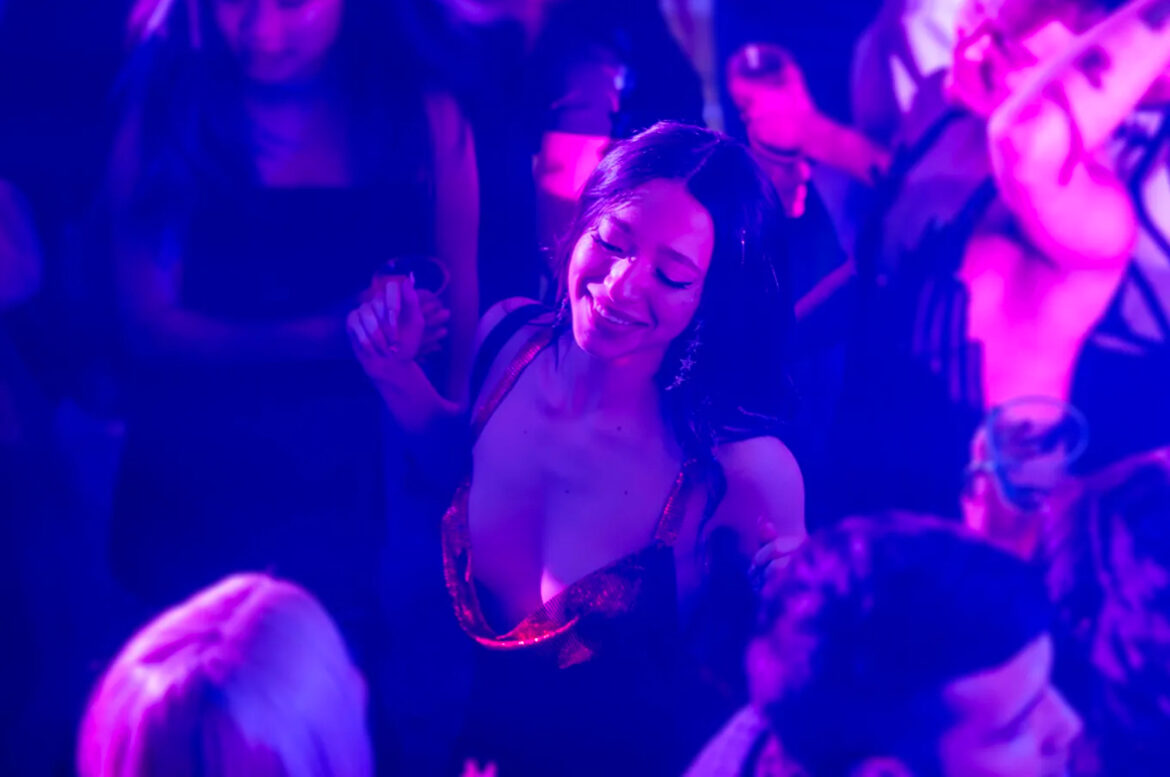It’s obvious that Sean Baker tried to wrench our hearts with this one — and that’s not to say that he failed entirely. His new film, Anora, released to rave reviews and a Palme d’Or award — the top prize — at the 2024 Cannes Film Festival, certainly left viewers stepping out of the movie theater shedding tears. In the final scene, Anora, devastated and willingly having annulled her marriage, attempts to seduce a kind henchman to her ex-husband’s father. She collapses in tears whilst on top of him — which should have been the film’s emotional climax, but its intended gravity was hardly justified by the unsure-of-itself, seemingly screwball comedy movie that had come before it. Baker, a director known for his sensitive explorations of the underbellies of society, sucked the drama and consistency of tone out of this film, replacing it with cheap comedy presumably in an attempt to make the provocative theme of sex work palatable to a wider audience.
Anora has many elements of a film that could have made a powerful and intriguing story and statement. The female lead, Anora, or, Ani, as she prefers to be called, leads a depressing life outside and inside of her work as a stripper. Vanya Zakharov, the irresponsible son of a Russian billionaire, poaches her into private escort service, catapulting Ani into a life of luxury. Vanya eventually marries Ani for kicks and a green card, angering his parents enough to send their henchmen after them. The henchmen, Igor, Garnick and the family Orthodox priest, Toros, attempt to annul the marriage before Vanya runs off to the club where he met Ani.
But the intrigue stays that way — on paper. What starts as an interesting exploration of the class power dynamics wrapped up in a stripper’s life quickly devolves into an excessively slapstick movie that detracts from the meat of the story.
This could have been a comedy in which Ani happens to be a sex worker, or a thought provoking exploration of the difficulties of sex work, but the movie attempts both and succeeds at neither. The results are a distasteful clash of the two elements which detracts both from the complexity of sex work and the humor in the story.
The contradictions of the film begin with its setup and fulcrum: the legitimacy of the relationship between Ani and Vanya. It is entirely unbelievable to have Ani genuinely fall for Vanya. She could certainly have agreed to marry him for the money, but in this story, real love should be entirely out of the picture, or at least should be better justified. Ani leads a hardened and sad life with a sister that seems indifferent to her existence, and a job that forces her to cater to men who disgust her. That is why I felt such shock when — as Vanya obsessively played shooter games post-sex — Ani gave him a look of real endearment.
While love is an unpredictable event, the street smart Ani likely would not fall for an archetype she knows so well. Working at a strip club, Ani is no stranger to the excesses and pretenses of the rich, especially those of entitled scions. Vanya admits his character when he toys with Ani about the origins of “his” money, later admitting that he is the son of a billionaire. Ani’s alleged naivety combined with her hardened nature create a muddled image of her, making it clear her character was crafted to push the plot along. If this film is meant to be about Anora, as the title suggests, her character should at least be understandable and consistent.
The contradictory nature of the film continues with a rapid change in tone when the main conflict arises – when the henchmen capture Vanya and Ani for the annulment of their marriage at Vanya’s father’s home. Ani kicks and bites the henchmen who attempt to restrain her, and they hilariously complain about her animalistic nature. With every cheap joke and slapstick moment that followed, the film slipped further away from the intriguing emotional dynamic: a woman lifted out of poverty by her impromptu husband.
Comic relief in a tragic movie is not necessarily a bad thing, but the line has to be treaded carefully between the two tones. Instead, Baker intrudes upon the intricacies of sex work and the tragedy that surrounds Ani’s relationship with it for the purposes of that relief. If the point of this was to show the dehumanization and loss of self Ani experiences in her work, passively involved in the horrifying events that unfold in front of her, this should have been emphasized, and the stakes for her character ground into the viewer’s heads. Instead the film’s one-dimensional humor took us further from the Ani whose tragic character we had only just started to get to know and sympathize with.
This muddled tone is most poignantly shown in a specific scene during the home invasion. In this moment, the camera focuses on the priest, Toros, as he paces in the foyer while Igor attempts to restrain Ani in the nearby living room. When the camera pans back, the audience and Toros are tricked into believing that the gentle Igor is trying to rape Ani, holding her down in a suggestive pose which is quickly signaled to the audience as a joke by Toros’ flustered questioning of what Igor is doing. And it worked. Most of the audience in the theater was laughing, leaving me confused about what mood the film was trying to establish. Again, if Baker wanted to portray these events as emblematic of Ani’s loss of agency as a result of being used in the machinations of rich people’s games, then why was this a comedic moment? What should have been a tense scene that showed Ani’s desperate loss of control and the vaporization of her new life with the rich Vanya instead makes a confused mockery of her despair.
Ultimately, Anora is a film that had great potential, and was beautifully shot with a riveting plot that could have been fantastic. But Baker gets distracted by trying to make his movie mainstream using comedy. Perhaps he decided to go for a less serious execution because the nuances of sex work are a difficult selling point for Cannes. But Ani was lovable enough, and the storyline interesting enough, that the movie could have done without the excesses of humor and forced plot which detracted from the exploration of our protagonist’s psyche.
Baker seems to realize this in the final scene, when the camera eventually comes crawling back to what we really came to the movie theater to see and had missed the whole time: Anora.




Comments are closed.